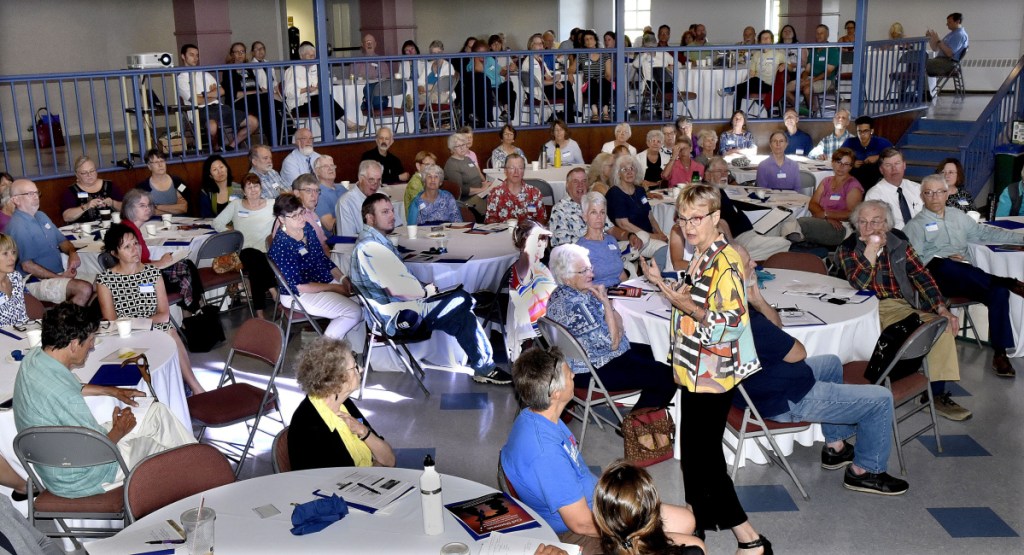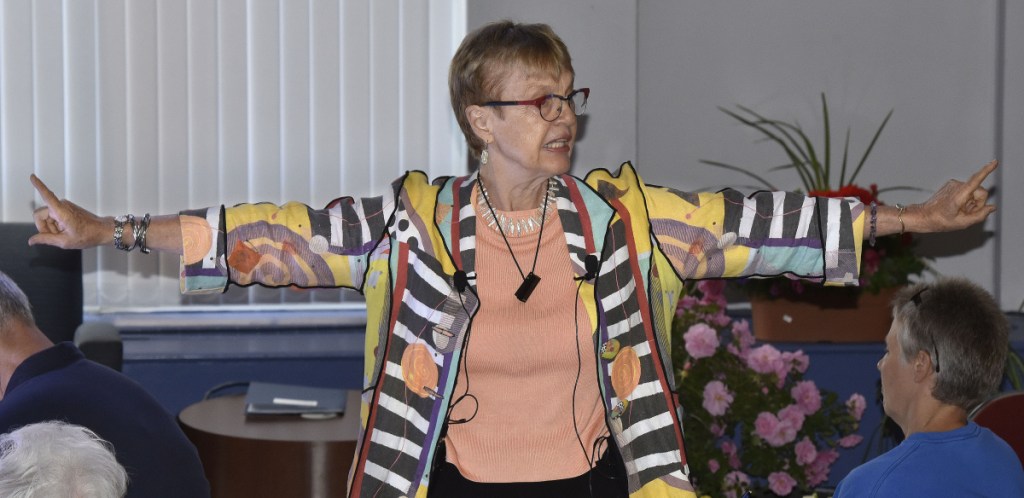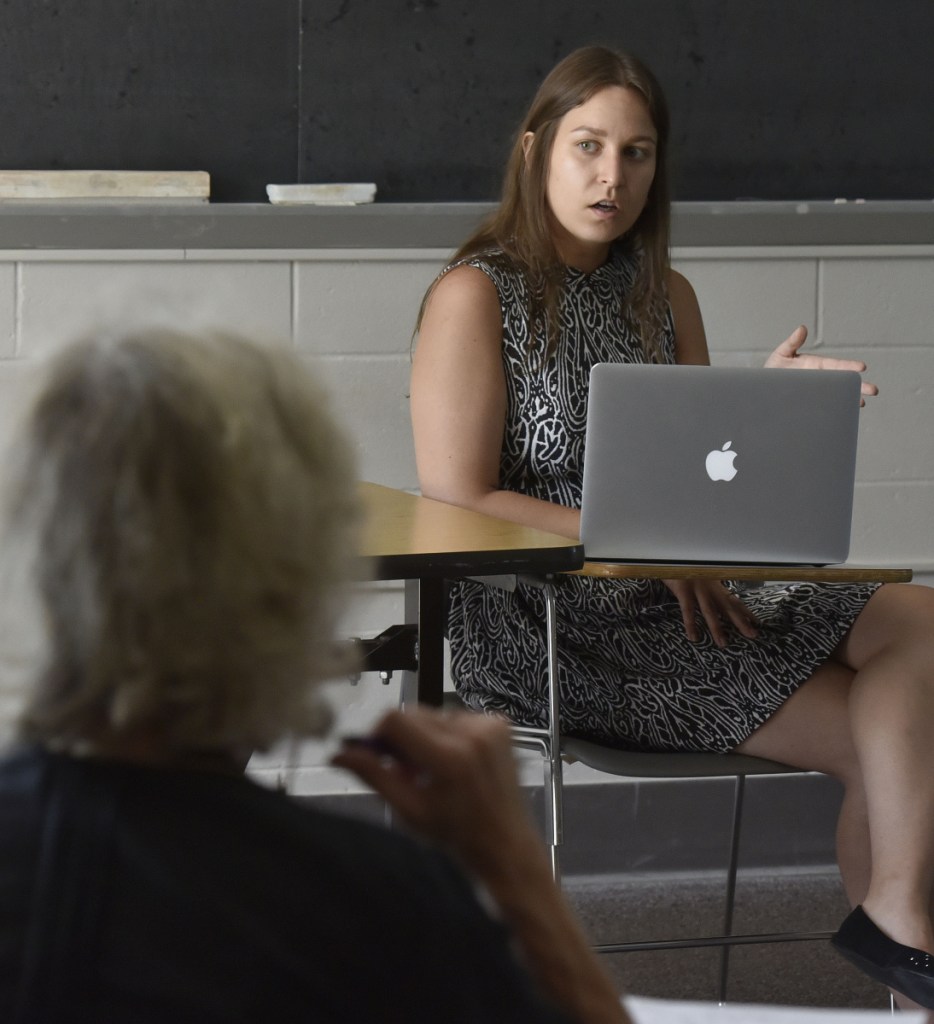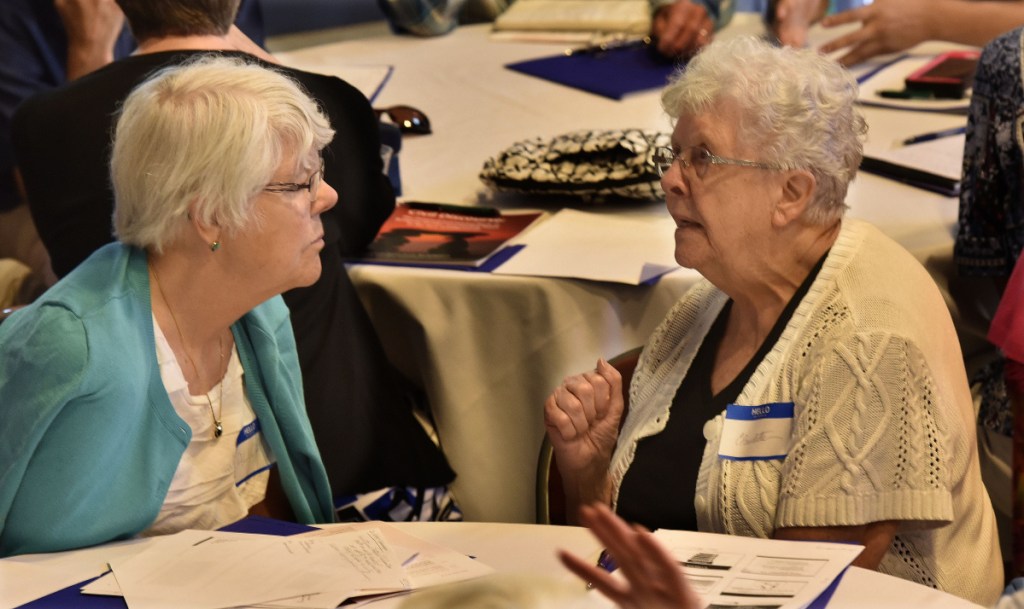After a close friend passed away, Donna Red Wing wanted to honor her by contacting someone she disagreed with and getting to know the person.
“I thought, who would be the most unlikely person on the planet I would reach out to? And it was Bob,” said Red Wing, former director of One Iowa, an LGBT rights advocacy group in Iowa, in a four-minute video screened Tuesday by the National Institute for Civil Discourse at Colby College.
The video, part of the 32nd Annual Thomas Nevola, MD Symposium on Spirituality and Health, documents an unlikely friendship between Red Wing and Bob Vander Plaats, the president and CEO of a conservative political organization called Family Leader, in Iowa.
“Donna and I, we see the world in a very different way,” Vander Plaats says. “In our view on marriage, on sexuality and probably a host of a whole lot of issues.”
Yet when the two decide to get together for coffee, they are able to establish some common ground that gets them thinking about how to act more civilly in the political arena.
The video, and its lesson on finding common ground, was the starting point Tuesday for a conversation about how to foster civil political discussions both locally and across the country in a time when Americans are more divided and stressed than ever.
In Waterville, too, recent controversy over the behavior of Mayor Nick Isgro led to a divisive recall election last week and concerns over how residents are interacting with each other when they talk politics.
About 300 people attended the symposium at Colby College, which had a theme of “Civil Discourse: The Outward and Inward Work of Bridging Divides and Finding Peace in the Differences.”
“Some people don’t think of civil discourse as a spiritual or health issue, but it is,” said Fred Craigie, symposium chairman. “The American Psychological Association, (Pew Research Center) and others have reported we as Americans are more polarized, more bitter and more angry than we have been in a long time. Anger, bitterness and hostility can have very adverse health affects, so the fact we’re more bitter and polarized than we have been is a real public health issue.”
According to a poll by public relations firm Weber Shandwick, 96 percent of Democrats and 95 percent of Republicans believe in the importance of civility to democracy. Ninety-three percent of the public believes it is important for the president of the United States to act with civility and 73 percent said a more civil President Donald Trump would be a more effective leader.
At the same time, the American Psychological Association recently reported the future of our nation is a leading factor in stress among Americans and 59 percent of Americans believe we are at “the lowest point in our nation’s history” that they can remember.
Carolyn Lukensmeyer, executive director of the National Institute for Civil Discourse and Tuesday’s keynote speaker, said while those outcomes have been blamed on the current political climate, they’re also partly a result of larger structural problems in our government — things such as money in politics, gerrymandering and the 24/7 news cycle.
A key to improvement is to have more civilized and quality conversations involving lawmakers, elected officials, the news media and the public.
The National Institute for Civil Discourse, founded in the aftermath of the Tucson, Arizona, shooting that injured U.S. Rep. Gabby Giffords, D-Arizona, has a few initiatives aimed at fostering better conversations both locally and nationally.
In 2016, the organization started its Revive Civility campaign, which encourages people to hold “revive civility” discussions in their communities and asks local leaders to consider signing civility pledges affirming their commitment to collaboration.
Another program, Next Generation, trains state legislators on ways to collaborate better in statehouses across the country. Maine is currently among 16 states that have sent lawmakers to the training.
In addition, residents can take small steps toward improving civility in their own communities, Lukensmeyer said. She asked attendees at the symposium to take a few minutes and ask themselves the same question Donna Red Wing did — “Who would be the most unlikely person on the planet I would reach out to?” — and ask that person to coffee.
Think about the risks and the rewards, she said. Is there anything to lose by having coffee with the person?
If they agree, take time to listen and understand what in that person’s life experience has lead to them holding the beliefs they do.
“The whole idea is we have to learn to disagree without being disagreeable and without making moral judgments on each other as human beings,” Lukensmeyer said. “This is a public health issue. It’s like a virus. It’s gotten into our communities, our schools, and it will only continue unless we commit to actively change it.”
Rachel Ohm — 612-2368
Twitter: @rachel_ohm
Send questions/comments to the editors.








Success. Please wait for the page to reload. If the page does not reload within 5 seconds, please refresh the page.
Enter your email and password to access comments.
Hi, to comment on stories you must . This profile is in addition to your subscription and website login.
Already have a commenting profile? .
Invalid username/password.
Please check your email to confirm and complete your registration.
Only subscribers are eligible to post comments. Please subscribe or login first for digital access. Here’s why.
Use the form below to reset your password. When you've submitted your account email, we will send an email with a reset code.